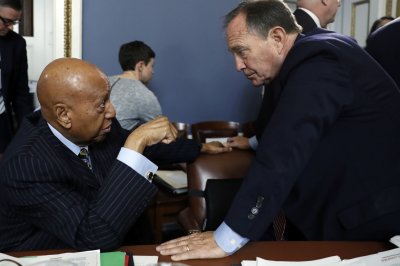Topic: Claude Pepper
Claude Denson Pepper (September 8, 1900 – May 30, 1989) was an American politician of the Democratic Party, and a spokesman for liberalism and the elderly. In foreign policy he shifted from pro-Soviet in the 1940s to anti-Communist in the 1950s. He represented Florida in the United States Senate from November 4, 1936 until January 3, 1951, and the Miami area in the United States House of Representatives from January 3, 1963 until May 30, 1989.
Born in Chambers County, Alabama in a shack belonging to poverty-stricken sharecroppers, Pepper graduated from the University of Alabama and Harvard Law School. He briefly taught law at the University of Arkansas, and then moved to Perry, Florida, where he opened a law practice. He was elected to the Florida House of Representatives in 1929. After being defeated for reelection he moved his law practice to Tallahassee, the state capital.
Pepper lost in the Democratic primary for the United States Senate in 1934, but won in a 1936 special election following the death of Senator Duncan Fletcher. In the Senate, Pepper became a leading New Dealer and close ally of President Franklin D. Roosevelt. He was unusually articulate and intellectual, and, collaborating with labor unions, he was often the leader of the liberal-left forces in the Senate. His reelection in a heavily fought primary in 1938 solidified his reputation as the most prominent liberal in Congress. He sponsored the Lend-Lease Act. Because of the power of the Conservative Coalition, he usually lost on domestic policy. However he was more successful in promoting an international foreign policy based on friendship with the Soviet Union. He gave lukewarm support to Harry S. Truman in 1948, saying the Democrats should nominate Dwight D. Eisenhower instead; but he did not support his friend Henry A. Wallace that year. He was re-elected in 1944, but lost his bid for a third full term in 1950 by a margin of over 60,000 votes. Ed Ball, a power in state politics who had broken with Pepper, financed his opponent, Congressman George A. Smathers. A former supporter of Pepper, Smathers repeatedly attacked "Red Pepper" for having far-left sympathies, condemning both his support for universal health care and his alleged support for the Soviet Union. Pepper had traveled to the Soviet Union in 1945 and, after meeting Soviet leader Joseph Stalin, declared he was "a man Americans could trust."
It uses material from the Wikipedia article "Claude Pepper."





